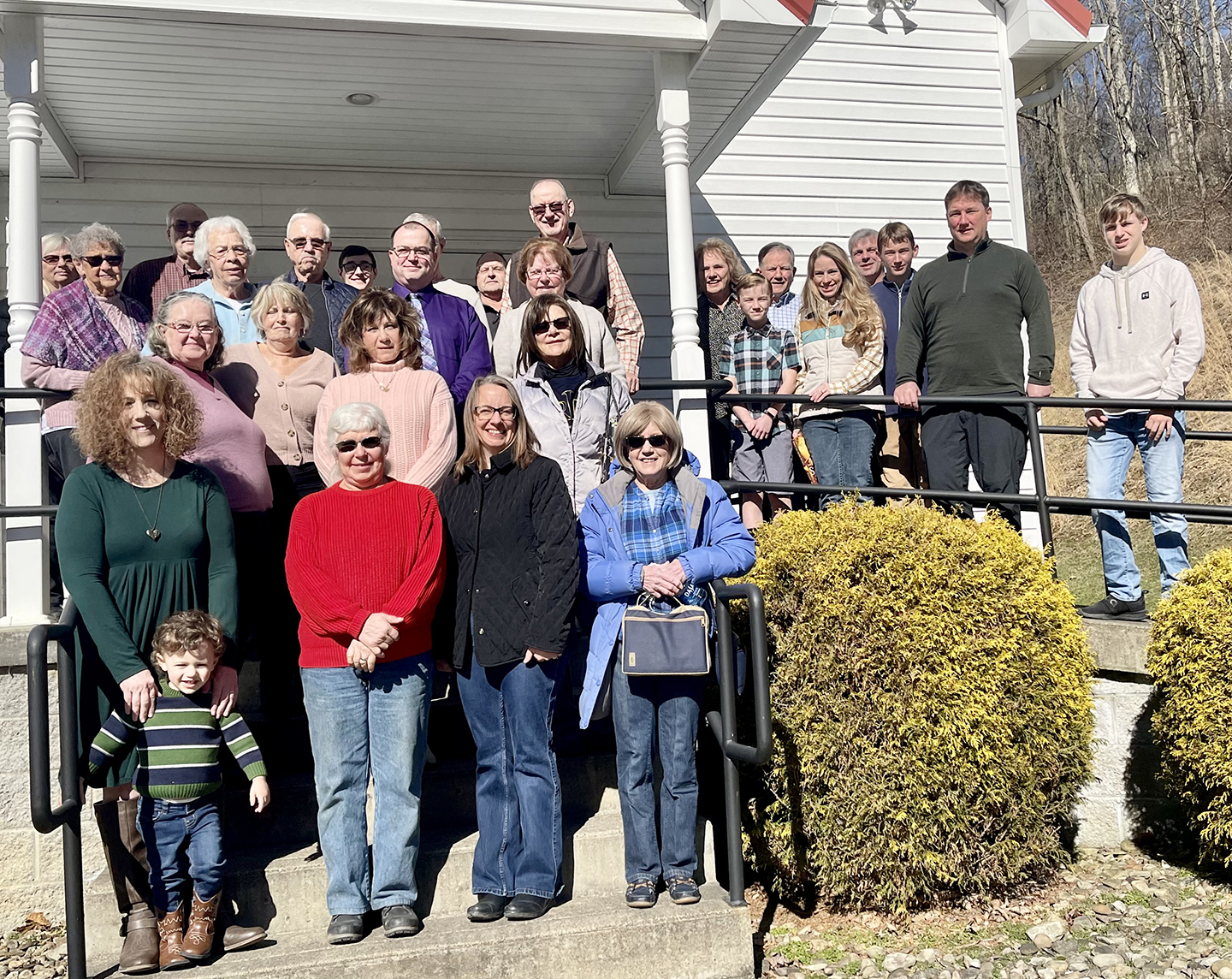When Methodism came to the valley below Grimes Hill in 1852, its first parishioners met at Johnson’s Schoolhouse for Sabbath School scheduled to “commence at 9 o’clock on Sunday and continue for one hour.”
It’s easy to forget that bible study back then was the bedrock of all schooling, from learning to read and spell to learning to engage the intellect as adults. And these farmers and their families were lifetime learners.
Sabbath School provided a librarian and eleven teachers to educate members. Old church records kept an exact tally of what such services cost before the Civil War. Those who subscribed to the 74-volume library paid between a quarter, 37 and a half cents and a dollar to use it, along with access to Testaments, hymn books, spelling books and an infant library – which cost 18 and a half cents.
Sabbath School was led by a variety of pastors, but it would not be until 1863 that it would organize as a church and parishioners would build Johnson’s Meeting House on land donated by Jacob Weaver, three quarters of a mile north of Johnson’s School. It would be another eight years before the church changed its name to Pleasant Valley Chapel, then shortened it the next year to Valley Chapel. A revival brought in new members and as the congregation outgrew the log cabin, parishioners dismantled it to the floor and built a modest frame church in 1881. The building committee kept careful note of the funds donated by 59 members that ranged from a dollar to fifty dollars, along with a pump for “1/3 the price” tithed by S.B. Eagon and sons.
Valley Chapel would remain a quaint country church, with two front doors leading to its 19th century sanctuary for the next 80 some years.
Sitting at the edge of Valley Chapel Road and hemmed in by neighbors, there was no room for major improvements. Gas heaters were replaced with a furnace and a poured concrete front porch was added in the 1960s. During the 1980s a rear addition was built for two Sunday School classrooms, along with indoor plumbing siding and a new roof and front porch. In 1987 Valley Chapel got its elbowroom when the Boswell house next door was bought and replaced with a pavilion for picnics and plenty of room for Vacation Bible School fun. By 2010 everything was renovated, replaced, repainted air conditioned, added on to and brought up to code with an access ramp.
These tidbits of history gathered for Valley Chapel’s 150th anniversary celebration in 2013 tell the story—in hard earned dollars and cents—of the farm families who rolled up their sleeves and built this place and whose descendants still delight in keeping it “a place where the work of God is preached, the Power of God is felt, the Spirit of God is manifested, the Love of God is revealed and the Unity of God is perceived.”
When I arrived on a snowy Sunday morning the paved parking lot was full. The furnace had malfunctioned the Sunday before and services were canceled but this morning the rooms were toasty, and the pews were full of neighbors glad to be together again. Members gathered in the foyer, a spacious place to hang coats and schmooze as Sunday School finished up before the 11 a.m. service.
Some unexpected news—Sunday School teacher Carlyn Grimes would fill in today for Pastor Gale Cobb—a family member had tested positive for Covid and he was in quarantine along with all the cupcakes he would have brought to church for Valentines Day.
Our expected laughter let us know that we’ve all gotten better at living with the unexpected. “I’m not a preacher, I’m a teacher,” Carlyn reminded us with a smile, then proceeded to engage the congregation in the Sunday School lesson that had been sidetracked by last week’s broken furnace. Valley Chapel has no piano player at the moment and Rev. Cobb usually brings the music so we sang unaccompanied, then found verses in John, Mathew and Luke that repeat the Testament of Jesus being taken before Pilot and the words they exchanged. It was the courtroom drama for the ages and we were both spectators and participants, caught up in a moment both holy and profane.
What is Truth and how do we know it? In Sunday School fashion, there was time for discussion between verses, time to consider what our own reactions might have been, time to compare these verses to the time we’re living in now. Who among us could have responded as Jesus did if it had been us in that courtroom?
Stop by any Sunday if you want to spend a good time with these neighbors. Extra points if you play the piano.
